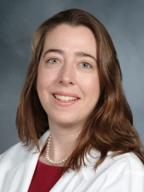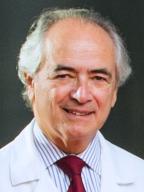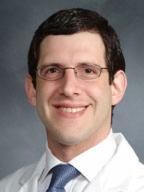
The Endocrinology, Diabetes and Metabolism Fellowship is a comprehensive two-year training program that provides unique, in-depth clinical and academic experience in the field of endocrinology. Endocrine fellows receive a wide range of didactic instruction and clinical training in the inpatient and ambulatory facilities of three premier medical institutions, all located within a four-block radius: NewYork-Presbyterian Hospital, Memorial Sloan-Kettering Cancer Center and the Hospital for Special Surgery. The first year of fellowship focuses on intensive clinical training, while the second year emphasizes clinical, translational, or basic research. Our fellows are actively involved in shaping their education, gain hands-on experience teaching residents and medical students, and receive individualized instruction from nationally- renowned clinicians and researchers.
Watch our video to learn more about our comprehensive, state-of-the-art program.
Fellows divide their time between NewYork-Presbyterian Hospital/Weill Cornell, Memorial Sloan-Kettering Cancer Center, and the Hospital for Special Surgery. The program's rotations enable fellows to see inpatient consults, participate in outpatient clinics, and attend academic conferences at all three institutions. At NewYork-Presbyterian Hospital, fellows diagnose and treat patients with general endocrine and metabolic disorders, and participate in a weekly Continuity Care Clinic. At the Hospital for Special Surgery, fellows gain experience in the diagnosis and treatment of metabolic bone diseases, and at Memorial Sloan-Kettering Cancer Center they receive unique training in thyroid malignancies, other endocrine tumors, and endocrine side effects of cancer treatment. During the second year, fellows work directly with expert faculty in endocrine subspecialty clinics. Each clinical rotation requires fellows to be actively involved in all aspects of patient care, and often provides the opportunity for fellows to gain teaching skills while supervising residents and medical students on elective.
During the second year of the program, at least 50% of the fellow's time is protected for participation in academic research. Based on individual interest and on-going studies, fellows may select faculty mentors from any of the three sponsoring institutions. Program faculty are currently conducting research in the areas of thyroid cancer, diabetes mellitus, obesity and metabolism, neuroendocrinology, and calcium and bone metabolism. Concurrent with second-year research, fellows may pursue a certificate or master's degree in clinical investigation from Weill Cornell's NIH-funded Clinical and Translational Science Center (CTSC). By the completion of their second year, fellows are expected to have prepared at least one study for presentation at a national conference or publication in a peer-reviewed journal. As appropriate, fellows may choose to continue their training with an optional third year of fellowship (non-ACGME) devoted to further research.
High-Risk Obstetrics
Lipids
Obesity
Pediatric Endocrinology
Reproductive Endocrinology
Neuroendocrinology
Transgender care
Emergency Lecture Series
Endocrinology Board Review
Endocrinology Case Conferences
Endocrinology Grand Rounds
Endocrinology Journal Club
Endocrine Work-in-Progress Meetings (Research Conferences)
Diabetes Technology Series
Program Director Clinic Rounds
Internal Medicine Grand Rounds
Metabolic Bone Disease Case Conference
Metabolic Bone Disease Grand Rounds
Metabolic Bone Disease Journal Club
Multi-disciplinary Thyroid Cancer Conference
Multi-disciplinary Pituitary & Neuroendocrine Tumor Conference
Multi-disciplinary Adrenal Conference
Root Cause Analysis: Insulin Keepsafes




